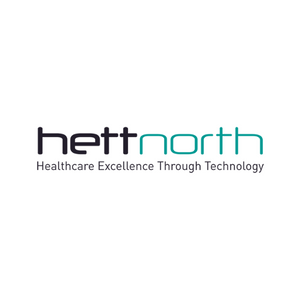In an era where technology is rapidly reshaping industries, digital transformation has emerged as a catalyst for change in healthcare. This paradigm shift goes beyond the integration of electronic systems; it's a holistic reimagining of healthcare processes and strategies. In this blog, we will explore the transformative strategies and processes that are driving digital innovation in the healthcare sector.
Strategies for Digital Transformation in Healthcare
-
Patient-Centric Care
At the heart of digital transformation in healthcare is a shift towards patient-centric care. This strategy involves leveraging technology to enhance the patient experience, improve access to healthcare services, and empower individuals in managing their health. Patient portals, mobile health apps, and telemedicine are key components that bring healthcare closer to the patient, fostering a more personalised and accessible healthcare ecosystem.
-
Interoperability and Data Integration
To unlock the full potential of digital transformation, healthcare organisations must prioritise interoperability and seamless data integration. Interoperability ensures that different healthcare systems and devices can communicate effectively, leading to a comprehensive and cohesive view of patient data. This strategy enables healthcare professionals to make more informed decisions and provides a more integrated and coordinated approach to patient care.
-
Agile Implementation and Iterative Processes
The dynamic nature of healthcare requires an agile approach to implementation. Embracing agile methodologies allows healthcare organisations to test and refine digital solutions in real-world scenarios, adapting to changing needs and evolving technology. Iterative processes enable continuous improvement, ensuring that digital initiatives align with organisational goals and remain responsive to the ever-shifting landscape of healthcare.
-
Data Analytics and Predictive Insights
Harnessing the power of data is a key strategy in healthcare's digital transformation journey. Advanced analytics and predictive insights enable healthcare providers to derive meaningful information from large datasets, leading to better decision-making and more proactive healthcare management. Predictive analytics, powered by machine learning algorithms, can forecast disease trends, identify at-risk populations, and optimise resource allocation.
-
Cybersecurity and Data Privacy
As digital technologies become more prevalent in healthcare, ensuring the security and privacy of patient data is paramount. Robust cybersecurity measures are integral to the digital transformation strategy, protecting sensitive information from cyber threats and unauthorised access. Compliance with data protection regulations further strengthens patient trust in the use of digital technologies within the healthcare ecosystem.
Processes for Digital Transformation in Healthcare
-
Assessment and Readiness
A successful digital transformation journey begins with a comprehensive assessment of the organisation's current state and readiness. This process involves evaluating existing technology infrastructure, identifying strengths and weaknesses, and assessing the organisation's capacity for change. Understanding the current landscape sets the stage for a well-informed and strategic approach to digital transformation.
-
Stakeholder Engagement and Collaboration
Stakeholder engagement is critical to the success of digital transformation initiatives. Involving healthcare professionals, IT teams, administrators, and patients from the outset fosters collaboration and ensures that digital solutions are aligned with the needs of end-users. Collaboration also promotes a culture of innovation, where diverse perspectives contribute to the development and implementation of effective digital strategies.
-
Integration of Electronic Health Records (EHRs)
Electronic Health Records (EHRs) serve as a cornerstone for digital transformation in healthcare. The seamless integration of EHR systems streamlines information management, enhances data accessibility, and supports more informed clinical decision-making. EHR platforms should prioritise user-friendliness and interoperability to facilitate efficient data exchange across different healthcare settings.
-
Training and Change Management
Digital transformation often requires a cultural shift within healthcare organisations. Adequate training and change management processes are crucial to ensure that healthcare professionals and staff can adapt to new technologies and workflows. Training programs should encompass both technical skills and the cultural aspects of change, fostering a positive and supportive environment for digital adoption.
-
Continuous Monitoring and Optimisation
Digital transformation is an ongoing process that requires continuous monitoring and optimisation. Establishing mechanisms for monitoring the performance of digital solutions, gathering user feedback, and making iterative improvements is essential. Regular assessments help identify areas for optimisation, ensuring that digital initiatives remain aligned with evolving healthcare needs and deliver optimal outcomes.
Challenges and Considerations
While the benefits of digital transformation in healthcare are substantial, challenges must be addressed. Concerns about data security, interoperability issues, resistance to change among healthcare professionals, and the need for regulatory compliance are common considerations. Healthcare organisations must navigate these challenges through strategic planning, robust cybersecurity measures, and effective change management strategies.
Digital transformation is revolutionising healthcare, paving the way for a more connected, efficient, and patient-centric industry. By implementing transformative strategies and processes, healthcare organisations can navigate the complexities of digital innovation successfully. The future of healthcare lies in a seamlessly integrated and data-driven ecosystem that prioritises patient well-being, efficiency, and continuous improvement. As the healthcare landscape continues to evolve, those embracing digital transformation will lead the way towards a more advanced and responsive healthcare ecosystem.
Find out More About Digital Transformation in Healthcare
Join us at HETT North on 28th February in Manchester to find out more about digital transformation in healthcare.
Register for your FREE pass now to enjoy:
- 40+ hours of CPD-accredited content across 6 content streams
- 100+ innovative suppliers
- 1-2-1 meeting opportunities with over 1,400 like-minded peers
- 100+ expert speakers including Jenny Chong, Masood Ahmed & Natasha Phillips
%20(1).png?width=500&height=58&name=HETT%20insights%20logo%20RGB-04%20(1)%20(1).png)


